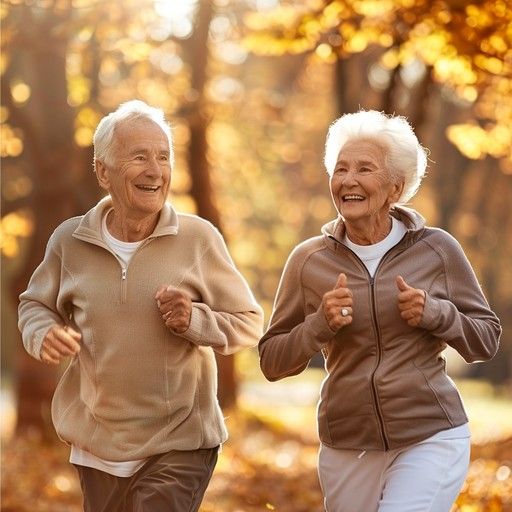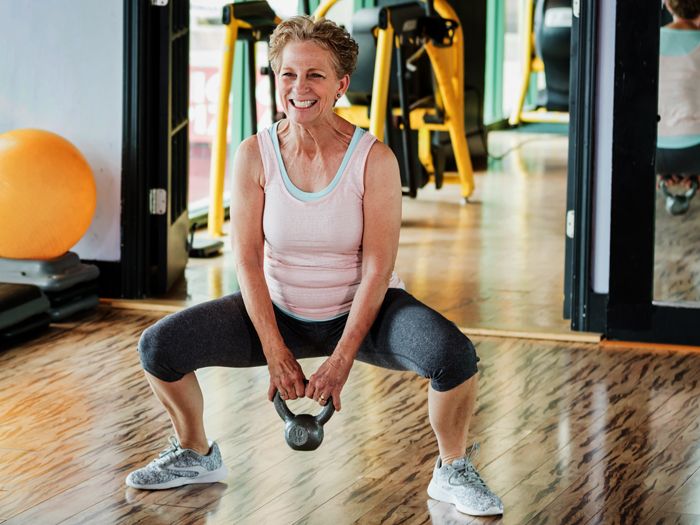
Meditation And Aging, Let’s start with what’s important: Take Mark and Sarah, two friends in their late 60s, going to get coffee. Sarah appears youthful and robust, with barely any visible wrinkles.
She also has a great memory that would make a 30-year-old blush. Mark, on the other hand, always talks about how stressed he is, how tired he is, and how he can’t remember easy things.
What does Sarah’s secret mean? Mark has been worried about work, money, and the daily grind for decades.
Sarah, on the other hand, has learned to be more mindful and meditate. Could this simple habit make you feel better and also make you live longer?
Let’s look at the science behind awareness, meditation, and getting older and how you can use it to beat Father Time.
Many studies have shown that stress commonly contributes to aging-related conditions. Chronic stress causes inflammation, suppresses the immune system, and speeds up cellular aging.
Mindfulness and meditation have been shown to counteract stress by reducing the levels of cortisol, which is the stress hormone. Telomere length is one of the main biomarkers of aging at the molecular level.
Telomeres, which are protective aspects at the end of chromosomes, decrease as we get older.


Lowers Cortisol Levels
Forcing high levels of cortisol over a long period of time leads to chronic inflammation and the damage of your very cells. Through meditation, cortisol can be regulated, and its negative impact can be reduced, allowing the nervous system to run more efficiently.
Enhances Brain Health
Meditation enhances the amount of grey matter in regions of the brain linked to memory, learning, and emotional regulation. Research shows that meditating regularly can slow cognitive decline and might even reduce the risk of neurodegenerative diseases like Alzheimer’s.
Supports Heart Health
Cardiovascular diseases are among the leading causes of age-associated mortality. Not only do the benefits of meditation work to reduce the risk of high blood pressure, cholesterol levels, and blood circulation, all factors involved with the healthy function of a working heart.
Improves Sleep Quality
Oxygen saturation is increased, which leads to oxidative stress formation, which speeds up aging and inflammation processes in the whole body. Meditation encourages relaxation and decreases stress and anxiety, allowing for deeper, more restorative sleep.
Boosts Immune Function
We need a strong immune system for a long life. Moreover, the immune response that causes the muscles to recover and build up is also enhanced through mindfulness practices, thus making the body more resilient to both chronic illness and disease.
If you’re a newcomer to meditation, beginning with a small amount is effective. So, to bring mindfulness into your life, there are a few practical ways:
Try focused breathing or a guided meditation for 5-10 minutes a day. As you feel more comfortable with the practice, lengthen the duration slowly.
Just focusing on your breath can help you ground your mind. Breathe in slowly through your nose, hold for several seconds, and breathe out. It settles the nervous system and facilitates calm.
Take a few minutes each day to think about what you are grateful for. This boosts positive feelings and lowers stress, preserving which can help lengthen life.
Sitting still isn’t always the only way to be mindful. Practices such as yoga, tai chi, or even mindful walking can keep you in the present and reduce stress.
There are plenty of apps for this, including Headspace, Calm, and Insight Timer, that all offer guidance on meditations. They can be excellent tools for both novices and those more advanced.
The scientific interest in the relationship between meditation and aging is growing. While we already know that exercise has benefits in reducing stress and improving brain health, researchers are now investigating exercise’s effects at the epigenetic level; epigenetics is the study of how factors in our lives increase or decrease the expression of certain genes.
Researchers are still looking into how much mindfulness affects genetic markers that are linked to aging. This supports the idea that mindfulness can help people live longer. As meditation becomes more accessible globally, its contribution to longevity may eventually become a cornerstone of contemporary health practices.

Meditation is only one part of a holistic approach to longevity. Its benefits are even more visible when paired with good lifestyle choices. Here are some other habits that promote healthy aging:
Nutritious Diet
Consuming whole, unprocessed foods with high antioxidant values decreases inflammation and oxidative stress.
Regular Exercise
Movement enhances cardiac performance, sustains muscle mass, and releases neuropeptides.
Education
Reading, solving puzzles, and learning new skills can keep the mind active and delay cognitive decline.
Social Connections
Relationships play a serendipitous role in your quality of mental health and can help you live longer.

Aging is adding the complexity and character of a life—not only counting years and marks but also the passage of time on a clock.
Additionally, mindfulness? This is one of the simplest and most effective ways to do just that. Who, then, is ready to meditate their way to 100?
Meditation offers protective effects against stress, enhances cognition, guards heart health, and preserves cellular health such as telomere length, all of which help slow aging.
Although mindfulness cannot stop time, there is strong evidence that it helps to prevent age-related ailments like Alzheimer’s, heart disease, and hypertension through increased well-being.
Even 10-15 minutes of meditation a day can bring immense benefit. Longer sessions could lead to deeper relaxation and more potent effects.
Yes, Research indicates that meditation may impact longevity by reducing stress, protecting telomeres, and enhancing overall health.
No, mindfulness is not a substitute for medical treatments or a healthy lifestyle, but rather works with them as a supplement.
There is no too early or too late to begin meditating. Mindfulness practices are beneficial for long-term health, regardless of age.